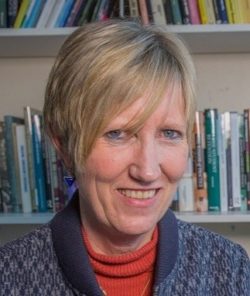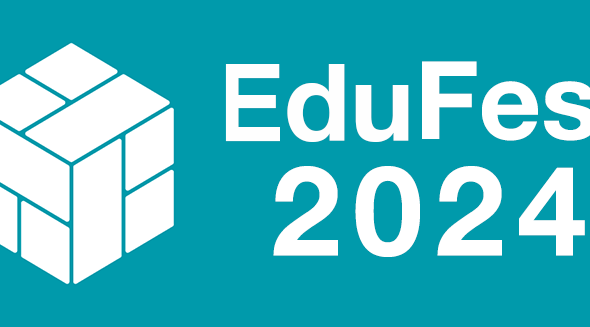Tansy Jessop leads the Academic Development team at Solent University, where she is Professor of Research Informed Teaching. She has led ‘Transforming the Experience of Students through Assessment’ (TESTA) for nine years, an approach which champions programme approaches to assessment, dialogic feedback and formative assessment. She is a Visiting Professor at the University of Bristol, which means enjoying regular train rides past the beautiful city of Bath, and working on programme-wide approaches to assessment there. Tansy’s roots are in South Africa.
What can you see outside of the window?
Palmerston Park, close enough to see the shimmer of the last of the season’s orange leaves in the sun, but not close enough to see the rats. In the distance I can see the Guildhall clock, which is my guide as to whether I’ll make it for my train in the evening.
What does your average day at work involve?
Lately I’ve been trying to spend the first hour writing, before I open my emails. If I have a clear diary, I do that at home before heading into the office. Before he went off for his second year at university, my older son cleared his desk in the loft, leaving a leather notebook on it for me to make jottings about my book: “I want you to write it here!”. Feel the pressure! When I get in to the office I check emails, chat to people, drink coffee, prepare and run curriculum and NSS workshops, see students, meet with academics, supervise PhDs – the ‘this’ and ‘that’ of academic development work.
Why do you think teaching at your university is important?
A few weeks ago I heard a really impressive talk by Professor Elizabeth Minnich, an American philosopher who was Hannah Arendt’s research assistant. Her book is called ‘The Evil of Banality’, flipping the title of her mentor. Her main argument is that teaching students to think critically is vital for humankind if we are not to sleepwalk into evil. She spoke of intensive evil as that which monsters do, like shooting children in a primary school, or locking your family in the basement for 18 years. She contrasted intensive evil with extensive evil, which is going along with things without thinking them through, in the absence of critical thinking or moral reasoning. So that’s why I think teaching at university is important because it can help to stop the worst of times happening. I am not sure it always does though!
"I’ve stopped thinking that teaching was about me having to know everything about the discipline and move it across into students’ heads... The shift is to thinking about what students are doing and thinking – and feeling."
What do you hope the impact of your teaching will be?
To excite students. To make then intellectually curious. To help them entertain different ideas and viewpoints without feeling threatened. To develop a strong sense of who they are in the world, while being humble and hospitable about other perspectives.
Who has inspired you most in your teaching career?
Graham Gibbs has been one of my key influencers. He is the architect of TESTA and I have learnt an enormous amount from him. Over the years, he has wittily shared many stories with me about his amazing career in educational development. He shoots straight from the hip, and he has a clarity of mind I really admire. People can only listen for 15 minutes; don’t read the quotes off a slide; be humorous with a serious intent. Those are a few of my teaching life-lessons from him.
When did a lecture go wrong and how did you overcome it?
Bath EduFest keynote 2018. Always be ready for the tech to fail. It did. Out went Powerpoint and the mentimeter poll. After a few adrenalin-fuelled moments, in came some retro-style teaching. Reading a quote from a book (remember them?), interacting with participants, people talking to each other in pairs. We forget that the real thing can be better than tech.
Recommend a book, film or album from the past year.
I really savoured ‘Gilead’ by Marilynne Robinson, recommended to me by my younger son’s girlfriend. I normally read detective fiction so this started slowly (there were no dead bodies!). Once I got into the slow cadences of the dying Pastor John Ames' memoirs written to his seven year- old son, I found myself in small-town Iowa in the 1950s wrestling with some of the big questions that perplex me today. I was particularly moved by the story of his taut relationship with the estranged son of his best friend.
What is the biggest change that you've made to your teaching since you started your career?
I’ve stopped thinking that teaching was about me having to know everything about the discipline and move it across into students’ heads. To be honest, I always knew that talking at people bores the socks off them, but only through being an academic developer, have I realised why and begun to assemble the theory and teaching tactics to help students to learn. The shift is to thinking about what students are doing and thinking – and feeling.
What piece of advice would you give to someone just starting out in teaching at your university?
Relax and enjoy being with your students. Be yourself and build relationships with them over the knowledge. Help them to relate to each other in class. Give them short talking and writing activities in class to help them stop and think. Remember that teaching is about who you are – as Parker Palmer writes: “good teaching cannot be reduced to technique; good teaching comes from the identity and integrity of the teacher” (from The Courage to Teach, 1998).
What three things would you take to a desert island?
My sausage dog, Alfie. My Spotify playlist. My husband. (In that order? Now that would be telling!).
Tansy will be running a Masterclass and Q & A at the University of Bath on Tuesday 27th November, starting at 14:15. Book your place below.
Respond



